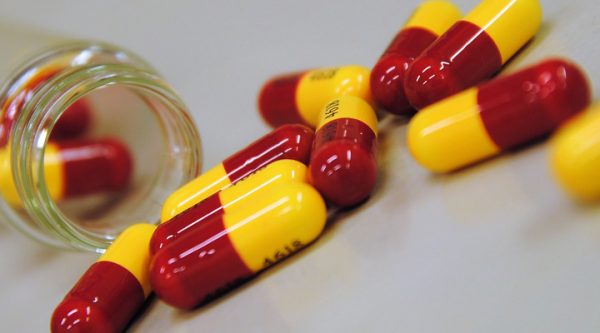This article contains affiliate links. If you make a purchase after clicking on a link I may earn a small commission at no extra cost to you.
DRUG ALLERGIES
Most reactions to therapeutic drugs are not due to allergy. Less than one in ten drug reactions are actually due to an immune reaction.
These can be either due to an IgE reaction with typical acute `IgE symptoms’ within an hour or cell mediated skin reactions and other symptoms such as fever and joint pains which are delayed more than an hour.’ The history and evaluation of the reaction are very important for making the diagnosis, because allergy testing is only available in a select few cases.
It is important to know the relationship between the drug and the symptoms, the severity and nature of the symptoms, and the time course of the symptoms after the reactions.
Reactions to antibiotics are one of the most common reported drug reactions, but many of these patients are not actually allergic. Rashes are very common with viral infections, especially in children, and may be unrelated to antibiotics that happen to have been prescribed (perhaps unnecessarily).
We therefore quite frequently see children who have been mislabeled as allergic to penicillin for many years. In many cases the probability of allergy is so low we may proceed directly to an oral challenge with the antibiotics to show that the patient is not allergic.
For penicillin and some other antibiotics we are able to perform IgE allergy tests (blood tests and skin tests). This is useful if the history is less certain.’
Blood Test Indicator
A positive blood test is a good indication of allergy and the drug is best avoided. If the blood test is negative this does not exclude an allergy and we usually proceed to do a series of skin tests (superficial and then deeper) which are more sensitive. If these are still negative, an allergy is very unlikely and we usually proceed to an antibiotic challenge to prove there is no current allergy.
We always stress to patients that a negative allergy testing/ challenge mean that they are not allergic now, but it does not exclude a new allergy developing at some point in the future.
For many other drugs, there are no allergy tests available, and challenges are the only definitive way of confirming reactions. However, because some reactions can be very severe and life threatening, drug challenges are not usually undertaken unless the previous reaction was mild or moderate, or the likelihood of allergy is low. When the probability of allergy is high and the previous symptoms were severe, we usually deem the risk of a challenge too high to recommend that the drug is completely avoided. In most cases, alternative unrelated drugs are available. Most countries have a medical-alert system and bracelets or medallions are issued to indicate the drug allergy warning.
In rare instances when patients have a serious condition that requires treatment and there is no other viable alternative, a rapid desensitization procedure can be performed. This is dangerous and must be done under specialist care. It involves starting with very low doses of the drug and giving relatively rapid increases of the drug over a short period (usually hours) to achieve the full therapeutic dose. Reactions during the desensitization procedure are treated, but the up-dosing still continues despite the reaction because the drug is considered essential.
If the drug is needed for an extended period, it must continue to be given daily to maintain the desensitized state. If it is discontinued, the patient will need to go through the same procedure in the future if the drug is ever needed again.
